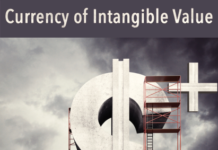As universities grapple with the problem of understanding what “value for money” means, as well as how to show it, Jean Mutton reflects on a recent debate on the topic in Manchester which threw up a surprising outcome.
I was intrigued by Simon Perks’ recent blogpost for Efficiency Exchange – ‘VFM: it’s about the value not the money’. So when there was a panel debate on the topic ‘This house believes that a degree is a sound financial investment’ at the Association for University Administrators (AUA) conference, (theme: Transformation, held just before Easter at the University of Manchester) I was keen to see if there was any synergy in the discussion with the points that Simon had made.
Employers are finding that they need to retrain graduates… and therefore a degree is no longer a golden ticket to a ‘good job’.
There were four high-profile panellists: Sana Iqbal, President of the Central Lancashire Students’ Union and Professor Malcolm Press, vice chancellor of Manchester Metropolitan University who spoke for the motion, with Ant Bagshaw deputy director of Wonkhe and Rose Marley, CEO of SharpFutures, speaking against. Professor Ruth Farwell (AUA honorary president) chaired the session. Each speaker laid out their position and then the audience was invited to join in the debate before a vote was taken, using an app, on the outcome.
HE benefits “do not bring any value to the workplace”
The arguments flowed pro and con, with the debate covering topics such as how HE can transform lives, bringing more wealth, happiness and better health to those who have donned the mortar board than those who have not (though it was agreed that there are many people have done great things who have never darkened the doors of an ivory tower).
The arguments against ranged from a perception that the benefits of HE do not bring any value to the workplace as universities are struggling to keep up with the pace of innovation.
Employers are finding that they need to retrain graduates (who often have an inflated idea of their own self-worth) and therefore a degree is no longer a golden ticket to a ‘good job’. It was argued that the standard 3-year degree programme does not deliver and we should see beyond the degree to look for a better product which is fit for purpose and fit for the future.
This led to a debate around ‘social mobility’ and how hard it is to put a value on the ‘soft skills’ that the experience of being at university can bring, such as increased confidence, team working and critical thinking, raising aspirations along the way.
In a hall full of HE professional services staff, it looked as though the turkeys had nearly voted for Christmas.
Was the vote result really about the rising costs of study?
The conference had around 650 attendees. I do not know how many people there were in the room, but it was not far short of that number. When the audience was asked to vote on the motion, there were 350 responses.
The outcome was in favour, but the margin was smaller than I had anticipated, with 55% voting for and 45% against.
In a hall full of HE professional services staff, it looked as though the turkeys had nearly voted for Christmas – if these AUA delegates genuinely thought that a degree was not a sound financial investment, what did that mean for the future of HE? And their jobs?
Reflecting on the result later on that day, I wondered if in fact it was a shout out about the rising costs of study. If degrees were ‘free’ or at a lower cost, would the outcome have been different?
In his blog post, Simon stated that ‘Value for money is about how the institution sees itself and its place in academia and society’. Perhaps value for money is also about whether students see their time at university as a worthwhile investment and the opportunity to grow into their future selves in a world of rising fees?
Follow Jean Mutton on Twitter via @myderbi








